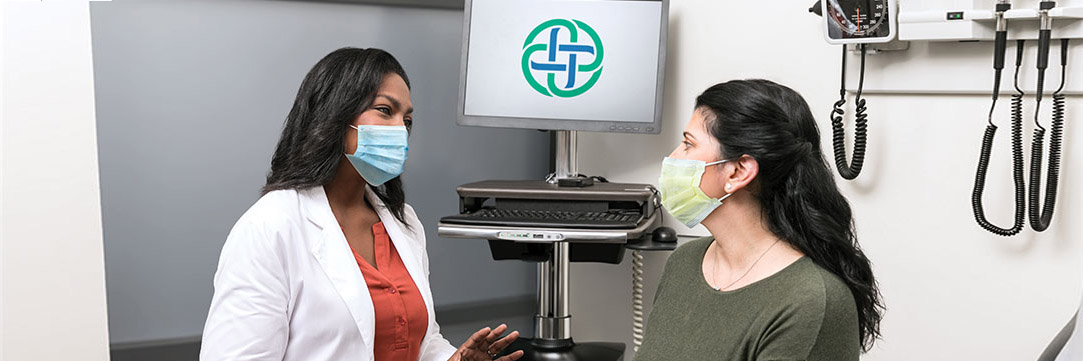Maybe you’re feeling tired. Or you can’t explain why you’re gaining weight despite a healthy lifestyle that includes a good diet and plenty of exercise. Or maybe your heart races and you find yourself feeling cold all the time.
According to the American Association of Clinical Endocrinologists (AACE), all of those things could be signs that your thyroid isn’t functioning as it should.
“Thyroid disease is more common than diabetes or heart disease,” the AACE says, adding that as many as 30 million Americans have some form of thyroid disease, and more than half are undiagnosed.
But what is the thyroid—and what does it do?
“The thyroid is located near the front surface of the neck,” explains Jessica Brown, M.D., OB/GYN and physician on the medical staff at Texas Health Arlington Memorial. “The major targets of thyroid hormone are the skeleton, heart and metabolic regulation.”
And it’s a very important organ for fetal health as well.
“Maternal thyroxine is transferred to the fetus and is important for fetal brain development,” Brown says. “It is especially important prior to the development of fetal thyroid gland function.”
According to the AACE, the following things can be risk factors for thyroid disease:
- Family history
- Prescription medications like lithium or amiodarone
- Radiation therapy to the head or neck
Two common thyroid diseases are hypothyroidism and hyperthyroidism. They can have some similar symptoms, but they also have some divergent ones as well, Brown says.
“Hypothyroid patients have a deficiency of thyroid hormone,” Brown explains. “Hypothyroidism is associated with nonspecific clinical findings including fatigue, constipation, cold intolerance, muscle cramps, weight gain, hair loss, depressed mood, low energy, menstrual irregularity and dry skin.”
According to the AACE, women are five times more likely than men to suffer from hypothyroidism. Aging is also a risk factor for the disease.
While hypothyroid patients have a deficiency of thyroid hormone, Brown says hyperthyroid patients have the opposite problem—an excess of thyroid hormones.
“Symptoms for hyperthyroidism include heat intolerance, tachycardia, enlargement of the thyroid gland, exophthalmos (bulging of the eye anteriorly), failure to gain weight or weight loss, anxiety, tremor, emotional lability, increased sweating, hyperdefecation, and absent or irregular menses,” she says.
In women, thyroid issues can affect fertility—both hypothyroidism and hyperthyroidism affect the hormones that regulate ovulation and periods, Brown says.
“Severe hypothyroidism is often associated with infertility and increased miscarriage rates,” she adds.
Some new mothers may even find themselves dealing with a form of thyroid disease that can look at first a lot like baby blues.
The condition—postpartum thyroiditis—can have symptoms that include depression, fatigue, anxiety and insomnia. But unlike postpartum depression or the “baby blues,” it is due to an autoimmune inflammation of the thyroid gland.
Brown says it’s found in five to 10 percent of women in the first year after childbirth.
“Between one and four months postpartum, a small percentage of women will develop a transient elevation in their thyroid hormone due to disruption of their thyroid gland,” Brown explains. “This usually lasts no more than a few months. And between four and eight months postpartum, a small percentage of women will develop hypothyroidism from inflammation of the thyroid gland.”
Brown adds that women are more likely to show symptoms during this phase of postpartum thyroiditis, and it’s often when a physician will prescribe medication to supplement the thyroid.
“Women who develop postpartum thyroiditis have a 30 percent risk of eventually developing permanent hypothyroidism,” Brown says.
While thyroid issues can affect anyone, statistically they do affect women more often, which means that women in particular should be aware of potential changes in their thyroid health.
“Thyroid hormones play an important part in bone, cardiac and metabolic health,” Brown says. “If you are diagnosed with a thyroid disorder, it is important that you take your medications as directed and have a doctor who is monitoring your disease. For women of reproductive age, it is important that your thyroid hormone is regulated during pregnancy for both maternal and fetal health.”

